
Find Help
More Items From Ergsy search
-

Why do some variants spread more easily?
Relevance: 100%
-

Are new variants more transmissible?
Relevance: 74%
-
What is a COVID-19 variant?
Relevance: 73%
-
What is the Covid-19 Stratus variant?
Relevance: 73%
-
How do COVID-19 variants arise?
Relevance: 73%
-

Is the Nimbus variant more contagious?
Relevance: 73%
-

Should I be worried about new variants?
Relevance: 71%
-

Do vaccines protect against the Stratus variant?
Relevance: 70%
-
How are COVID-19 variants detected?
Relevance: 70%
-

Can new variants cause reinfection?
Relevance: 69%
-

Are new COVID-19 variants more dangerous?
Relevance: 69%
-
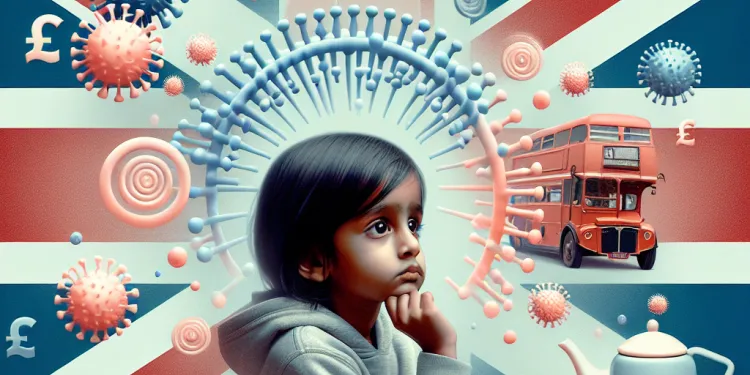
Are children more affected by new variants of COVID?
Relevance: 68%
-
How often do new COVID-19 variants emerge?
Relevance: 68%
-
New Covid Variant Strains
Relevance: 68%
-

Are there protocols for handling hypothetical variants?
Relevance: 67%
-
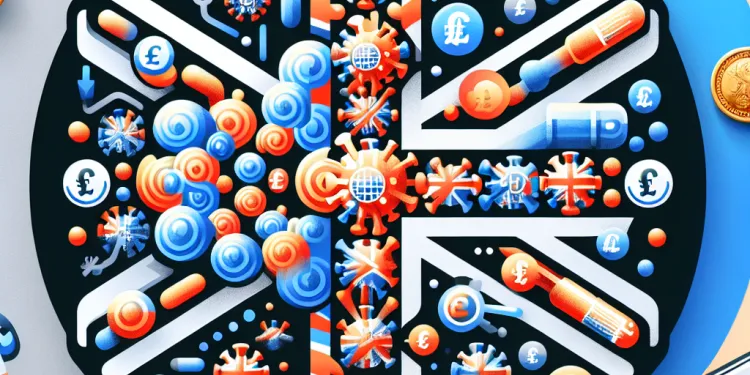
Do all mutations in the virus lead to new variants?
Relevance: 67%
-

What would happen if the Nimbus variant existed?
Relevance: 65%
-

Do vaccines work against new COVID-19 variants?
Relevance: 65%
-
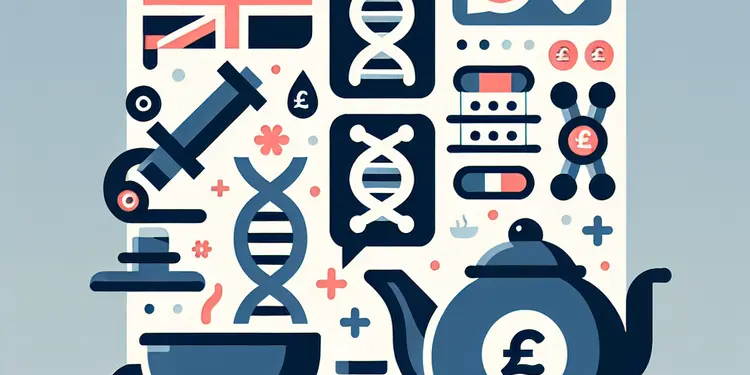
Is there concern about new hypothetical variants like Nimbus and Stratus?
Relevance: 65%
-

How can I protect myself from new COVID-19 variants?
Relevance: 65%
-
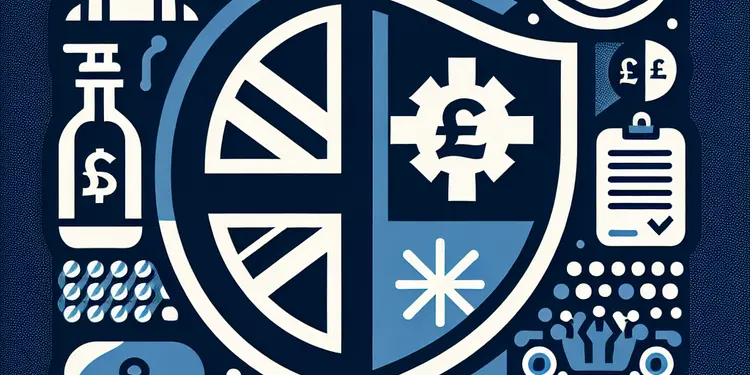
How can I protect myself from Covid-19 variants?
Relevance: 64%
-

What are the Nimbus and Stratus variants of Covid?
Relevance: 63%
-

How do scientists name new Covid-19 variants?
Relevance: 62%
-

What impact could a variant like Stratus have if real?
Relevance: 62%
-
Do new variants affect COVID-19 testing?
Relevance: 62%
-
What is the process to identify a new Covid-19 variant?
Relevance: 62%
-

Can hypothesized variants be used in scientific modeling?
Relevance: 61%
-

Are the Nimbus and Stratus variants officially recognized?
Relevance: 61%
-
Where can I learn about real Covid-19 variants?
Relevance: 60%
-

Has research been conducted on the Nimbus variant?
Relevance: 58%
-

Have there been fictional variants used in media discussions before?
Relevance: 54%
-
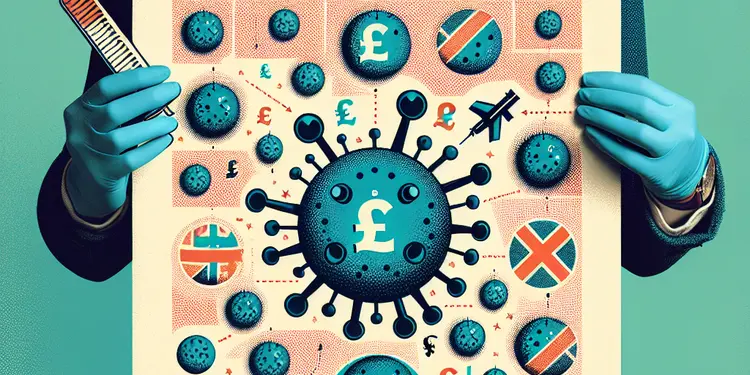
How is measles spread?
Relevance: 49%
-
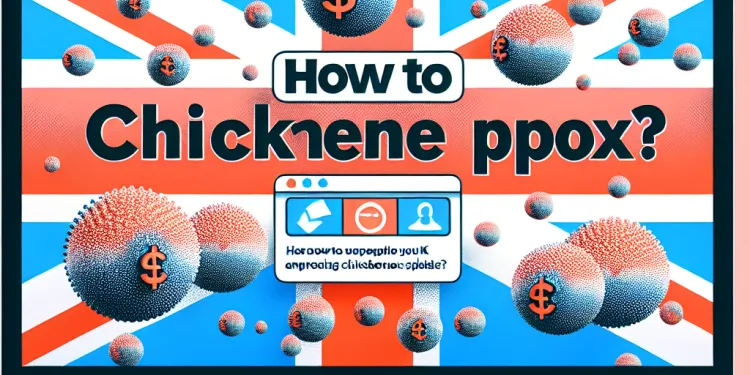
How is chickenpox spread?
Relevance: 49%
-
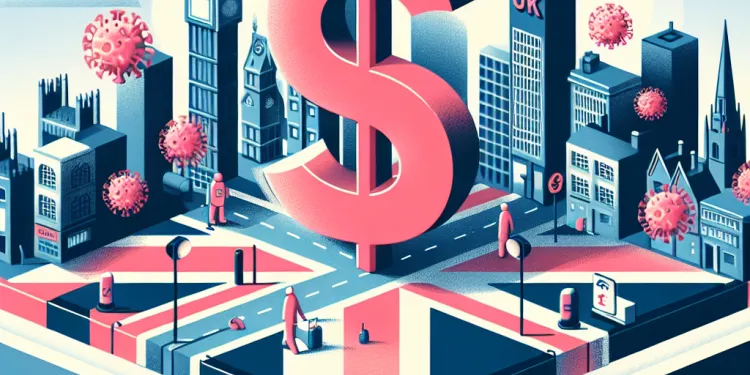
How is norovirus spread?
Relevance: 48%
-

Is malaria spread by mosquitoes in the UK?
Relevance: 47%
-
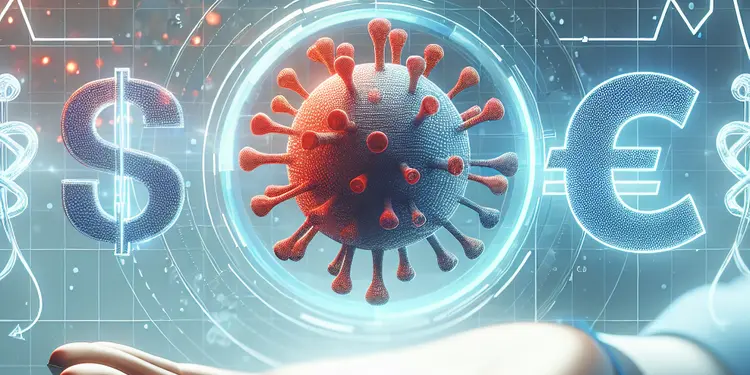
How is viral meningitis spread?
Relevance: 46%
-
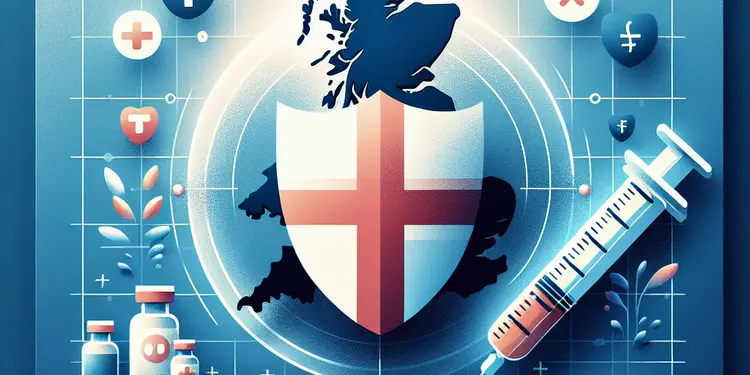
Is the COVID jab effective against new variants?
Relevance: 44%
-

How can I prevent the spread of impetigo?
Relevance: 43%
-
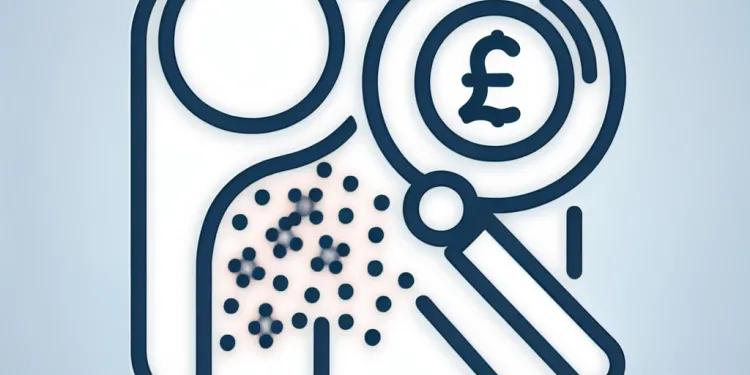
Can impetigo spread to other parts of my body?
Relevance: 42%
-

How can I prevent spreading my cold to others?
Relevance: 42%
Understanding Virus Variants
Viruses, including the coronavirus responsible for COVID-19, frequently undergo genetic changes. These changes can result in new virus variants. Some of these variants spread more easily than others. Understanding why particular variants have increased transmissibility is crucial in managing public health responses and mitigating the impact of outbreaks.
The Role of Mutations
Variants emerge due to mutations, which are changes in the virus's genetic material. Most mutations have little to no impact on the virus's ability to spread. However, some mutations can lead to advantages for the virus, such as enhanced transmission. For example, changes in the spike protein, which the coronavirus uses to enter human cells, can increase a variant's infectiousness.
Increased Infectiousness
One reason some variants spread more easily is because they are more infectious. A more infectious variant has a higher reproduction rate, meaning each infected person spreads the virus to more people on average. Mutations can increase the virus's binding affinity to human cells, making it easier for the virus to infect individuals. This can result in the variant spreading more widely within communities.
Immune Evasion
Some variants spread more efficiently by partially evading the immune response. Variants that can sidestep the immunity conferred by previous infections or vaccinations may reinfect individuals, leading to additional transmission. This ability to evade immune detection allows the variant to persist and propagate even in populations with high levels of immunity.
Human Behaviour and Environmental Factors
In addition to biological factors, human behaviour and environmental conditions play significant roles in the spread of variants. Changes in social distancing practices, travel patterns, and public health interventions can influence how quickly a variant spreads. During times of relaxed restrictions, for example, a highly transmissible variant may spread more rapidly.
Global Surveillance and Monitoring
Continuous global surveillance and genetic sequencing are critical in identifying new variants and understanding their impact. Monitoring these variants enables public health officials to respond promptly with strategies such as adjusted vaccination campaigns, targeted lockdowns, and travel restrictions to curb the spread of more transmissible variants.
Conclusion
While not all virus variants result in increased spread, those that do often possess mutations making them more infectious or allowing them to evade immunity. Understanding these factors can guide public health responses and inform vaccine development. Vigilance and adaptive strategies remain key components in addressing the challenge posed by more easily spread variants.
Understanding Virus Variants
Viruses, like the one causing COVID-19, often change a little bit. These changes make new kinds of the virus, which we call variants. Some variants spread faster and easier than others. We need to understand how these variants spread so we can keep people healthy and stop big outbreaks.
The Role of Mutations
Variants happen because of mutations. Mutations are changes in the virus's "instructions" (like a recipe for how to be a virus). Most mutations don't change how the virus spreads, but some do. If a mutation helps the virus spread better, it can be a problem. For example, if the virus changes and gets better at sticking to our cells, it can spread faster.
Increased Infectiousness
Some variants spread faster because they are more infectious. This means if one person gets sick, they can pass the virus to more people than before. Changes in the virus can help it stick to people better, so it spreads quickly through communities.
Immune Evasion
Some virus variants can also avoid our body's defenses. If we have had the virus before or got a vaccine, our body tries to fight it off. But some new variants change enough to trick our body's defenses, so they can infect people again. This means the virus can keep spreading, even if many people have had it before or have been vaccinated.
Human Behaviour and Environmental Factors
How people act and where they live also matter. If people stop being careful, like no longer keeping distance or traveling more, the virus can spread quicker. If rules get relaxed, a variant that spreads easily can move very fast among people.
Global Surveillance and Monitoring
It's important to watch for new variants around the world. Scientists look at the virus's genetic code to spot changes. Knowing about new variants helps health leaders decide what to do, like changing vaccines or putting rules in place to stop a spread.
Conclusion
Not all variants spread more, but some do. Those that spread more might have changes that make them stick better to people or avoid our defenses. We need to keep watching and changing our plans to handle these tricky variants. Understanding them helps keep us safe and healthy.
Frequently Asked Questions
What makes some virus variants spread more easily?
Some virus variants have mutations that enhance their ability to attach to human cells, replicate more efficiently, or evade immune responses, increasing their transmissibility.
Does a higher viral load affect the spread of a variant?
Yes, variants that result in a higher viral load in infected individuals can increase the likelihood of transmission to others.
How do changes in the spike protein affect transmission?
Mutations in the spike protein can improve the virus's ability to bind to host cell receptors, facilitating easier entry and increasing transmissibility.
Can changes in the virus's survival affect its spread?
Yes, variants that survive longer outside the host or on surfaces can have a higher chance of infecting new hosts, enhancing spread.
Do variants that evade immunity spread more easily?
Variants that can partially evade the immune response can spread more easily in populations as they can infect people who were previously immune or vaccinated.
Does human behavior influence the spread of variants?
While human behavior is key to spread, variants that are more transmissible can spread more easily regardless of behavior changes, although behaviors like social distancing can still mitigate spread.
Are there environmental factors that affect how easily a variant spreads?
Yes, factors like humidity, temperature, and population density can influence how easily a variant spreads.
Do all mutations in a virus make it spread more easily?
No, not all mutations result in increased transmissibility. Some may have no effect or even reduce virulence.
Can a variant's incubation period affect its spread?
A shorter incubation period can lead to a quicker transmission cycle, potentially aiding rapid spread in populations.
Do variants with increased transmissibility always lead to more severe disease?
Not necessarily. Increased transmissibility doesn't always correlate with severity, though some variants can be both more transmissible and more virulent.
How does natural selection influence which variants spread more easily?
Variants that spread more successfully have selective advantages and become more prevalent due to natural selection.
Does a variant's mode of transmission affect its spread?
Yes, viruses that are transmitted more efficiently via aerosols may spread more easily than those requiring close contact.
How does genetic recombination contribute to variant spread?
Recombination can lead to new variants with advantageous traits, potentially enhancing their ability to spread.
Can increased transmission lead to a higher mutation rate?
Yes, higher transmission means more replication cycles, which can result in more mutations over time.
Why don't all highly transmissible variants become dominant?
Other factors like public health interventions, immunity in the population, and random chance can prevent some highly transmissible variants from becoming dominant.
Do animal reservoirs impact the spread of variants?
Variants that can infect multiple species may spread more extensively due to cross-species transmission opportunities.
How does the immune landscape of a population affect variant spread?
A population with lower immunity levels is more susceptible to spreading a new variant, especially if it evades previous immunity.
Do some variants spread more easily due to asymptomatic carriers?
Yes, variants that lead to more asymptomatic cases can spread undetected, increasing transmission.
Can vaccine coverage impact the spread of variants?
High vaccine coverage can reduce variant spread, but vaccines need to effectively protect against circulating variants.
What role does antiviral resistance play in variant spread?
Variants with resistance to treatments can spread more easily if those treatments fail to stop transmission in infected individuals.
Why do some viruses spread faster?
Some viruses change and become better at spreading. This means they can jump from person to person more easily.
These changed viruses can get into our bodies more quickly. They might stick better or hide from our body's defenses.
To stay safe, wash your hands, wear masks, and keep some space from others.
If you find reading hard, you can try listening to the information or ask someone to explain it to you.
Some virus types have changes that help them stick to human cells better. They can grow faster and hide from our body's defenses, making them spread easier.
Does having more virus in your body make it spread more?
If you have more virus germs, can you spread them more easily? Let's find out.
Tools to help you:
- Ask someone you trust to explain words you don't know.
- Use a dictionary if you find a difficult word.
- Draw or use pictures to understand better.
Yes, if someone gets a variant of the virus that is stronger, it can make them have more germs in their body. This makes it easier for them to pass the virus to other people.
How does a change in the spike protein affect spreading?
The spike protein is a part of the virus. It helps the virus to get into people’s cells and spread.
If the spike protein changes, it can make the virus spread more easily or sometimes less easily.
To understand better, you can use pictures or videos that explain how viruses spread. Talking to someone who knows about this, like a doctor, can also help.
Changes in the spike protein can help the virus stick better to cells in the body. This makes it easier for the virus to get in and spread from one person to another.
Can changes in how long a virus lives affect how it spreads?
Sometimes viruses change. This can help them live longer.
This might make it easier for the virus to spread from one person to another.
Tools like pictures or videos can help you understand this better.
Yes, some types of germs can stay alive longer on things we touch. This means they have more chances to make more people sick.
Do some virus changes spread faster?
Sometimes, viruses change a little bit. These changes are called variants.
Some variants can escape the body's defense. This means they do not get stopped easily.
Because of that, these variants might spread more quickly to other people.
If reading is hard, use tools like text-to-speech. Listening can be helpful.
Some virus types can get past our body's defenses. They can make people sick, even if they had a vaccine or were sick before. This makes it easier for these virus types to spread to more people.
Can what people do affect how viruses change and spread?
People's actions can help stop the spread of germs. But some germs spread more easily, even if people are careful. Keeping a safe distance from others can help slow down the spread.
Do things in the environment help a virus spread more easily?
Some things like temperature and how we live can make it easier for a virus to spread. Below are some helpful ways to learn more:
- Pictures and Videos: Look at pictures or watch videos about how viruses spread.
- Ask for Help: Talk to someone if you need help to understand this.
- Simple Texts: Use books with simple words to know more.
Yes, things like the wetness in the air, how hot or cold it is, and how many people are close together can change how fast a sickness spreads.
Here are some tools and techniques to help:
- Use bold and colorful text for important words.
- Read slowly and take your time.
- Break big ideas into smaller parts.
- Ask someone to read with you.
Do all changes in a virus help it spread more?
No, not all changes in a virus make it spread more easily. Some changes might do nothing, and some might make the virus weaker.
Does the time a virus takes to show symptoms change how it spreads?
If the time for a virus to start showing symptoms is short, it can spread faster from one person to another. This can make it move quickly through groups of people.
Do variants that spread more easily always make people sicker?
No, not always. Sometimes, when a virus spreads more easily, it doesn't mean it makes people sicker. But some versions of the virus can spread easily and also make people feel worse.
If reading is hard, you can use tools like audiobooks or apps that read text out loud.
How does natural selection help certain changes spread more?
Changes or "variants" that spread better get an advantage. They become more common because of a process called "natural selection." This means the best changes have a better chance to grow and spread.
Does how a virus spreads change how fast it spreads?
Does the way a virus travels from one person to another change how quickly it spreads among people?
For example, if a virus spreads through the air, by touching, or through other ways, can this change how many people catch it?
Using pictures or videos can help make this easier to understand. You can also ask someone to explain it with simple words.
Yes, viruses that spread through tiny drops in the air can pass from person to person more easily than viruses that need people to be close together to spread.
How does genetic mixing help new variants spread?
Recombination is when pieces of genetic material mix in new ways. This can create new versions of viruses or bacteria. These new versions might have special traits that help them spread faster or survive better.
If you find it hard to read, using tools like audio books or having someone read with you can be helpful.
Can more spreading make germs change faster?
Yes, when viruses spread more, they copy themselves more. This can lead to more changes in the virus over time.
To help understand, you can:
- Use pictures to show how viruses spread and change.
- Watch videos that explain how viruses work.
- Ask someone to read with you and talk about what you learn.
Why don't all fast-spreading virus types take over?
Some virus types spread quickly but don't become the main type. Here's why:
- Other virus types might be stronger.
- A virus needs to spread in the right place and time.
- Vaccines and people's actions can stop a virus.
To understand better:
- Use pictures and videos to see how viruses spread.
- Talk with someone who knows about viruses.
Sometimes, things like health rules, people being immune, and luck can stop some very spreadable virus types from taking over.
Do animals help spread new virus versions?
Some viruses can live in animals. These animals are called "animal reservoirs."
If a virus changes in these animals, new versions can spread. This might help the virus spread more widely.
People can use pictures or videos to learn more. Speaking or reading aloud can also help understand better.
Germs that can make different animals sick can spread a lot because they can move from one animal to another.
How does the immune landscape of a population affect variant spread?
The immune landscape is about how many people have protection against a virus. This can be from vaccines or from being sick before.
When many people are protected, it is harder for the virus to spread. This is because the body fights the virus better.
If not many people are protected, the virus can spread more easily. This is because the virus can find more people to make sick.
Tools to help understand:
- Use pictures to show how a virus spreads.
- Watch videos that explain viruses and protection.
People who do not have strong protection can get a new sickness more easily. This is worse if the sickness does not get stopped by old protections.
To help understand this, you can use tools like pictures or videos.
Talking with friends or family can also help you learn more.
Do some types of the virus spread more easily because people don't feel sick?
Some people have the virus but do not feel sick. They are called "asymptomatic carriers." These people can still spread the virus to others.
It's important to wash your hands often and wear a mask to stay safe.
If you need help reading, you can ask an adult or use a reading app that reads the words out loud.
Yes, when virus variants cause more people to feel fine but still carry the virus, the virus can spread without being noticed. This means it can infect more people.
Can vaccines help stop the spread of virus changes?
When more people get vaccines, it can slow down how fast the virus changes and spreads.
Vaccines give your body strength to fight the virus.
If lots of people get the vaccine, the virus has fewer people to infect.
This can help stop new, different versions of the virus from spreading.
Tools that can help you understand more:
- Ask a friend or family member to help explain.
- Use pictures or drawings to show how viruses and vaccines work.
- Watch simple videos about how vaccines protect us.
Getting lots of people vaccinated can help stop the spread of new virus types. But the vaccines need to work well against these new virus types.
How does resistance to antiviral drugs affect the spread of virus variants?
Some viruses have variants that are harder to stop with medicine. This is called "antiviral resistance."
When a virus changes to resist the drugs, it can spread more easily. This is because the medicines don’t work as well to stop it. So, more people might get sick.
If a virus spreads more, more people may need help or medicine. Doctors and scientists watch these changes closely.
Tools to learn more:
- Watch videos that explain how viruses change.
- Use pictures or charts that show virus changes.
Sometimes, germs change and can resist medicines. If medicines do not work, these germs can spread easily from one person to another.
Useful Links
This website offers general information and is not a substitute for professional advice.
Always seek guidance from qualified professionals.
If you have any medical concerns or need urgent help, contact a healthcare professional or emergency services immediately.
Some of this content was generated with AI assistance. We’ve done our best to keep it accurate, helpful, and human-friendly.
- Ergsy carfully checks the information in the videos we provide here.
- Videos shown by Youtube after a video has completed, have NOT been reviewed by ERGSY.
- To view, click the arrow in centre of video.
- Most of the videos you find here will have subtitles and/or closed captions available.
- You may need to turn these on, and choose your preferred language.
- Go to the video you'd like to watch.
- If closed captions (CC) are available, settings will be visible on the bottom right of the video player.
- To turn on Captions, click settings .
- To turn off Captions, click settings again.
More Items From Ergsy search
-

Why do some variants spread more easily?
Relevance: 100%
-

Are new variants more transmissible?
Relevance: 74%
-
What is a COVID-19 variant?
Relevance: 73%
-
What is the Covid-19 Stratus variant?
Relevance: 73%
-
How do COVID-19 variants arise?
Relevance: 73%
-

Is the Nimbus variant more contagious?
Relevance: 73%
-

Should I be worried about new variants?
Relevance: 71%
-

Do vaccines protect against the Stratus variant?
Relevance: 70%
-
How are COVID-19 variants detected?
Relevance: 70%
-

Can new variants cause reinfection?
Relevance: 69%
-

Are new COVID-19 variants more dangerous?
Relevance: 69%
-

Are children more affected by new variants of COVID?
Relevance: 68%
-
How often do new COVID-19 variants emerge?
Relevance: 68%
-
New Covid Variant Strains
Relevance: 68%
-

Are there protocols for handling hypothetical variants?
Relevance: 67%
-

Do all mutations in the virus lead to new variants?
Relevance: 67%
-

What would happen if the Nimbus variant existed?
Relevance: 65%
-

Do vaccines work against new COVID-19 variants?
Relevance: 65%
-

Is there concern about new hypothetical variants like Nimbus and Stratus?
Relevance: 65%
-

How can I protect myself from new COVID-19 variants?
Relevance: 65%
-

How can I protect myself from Covid-19 variants?
Relevance: 64%
-

What are the Nimbus and Stratus variants of Covid?
Relevance: 63%
-

How do scientists name new Covid-19 variants?
Relevance: 62%
-

What impact could a variant like Stratus have if real?
Relevance: 62%
-
Do new variants affect COVID-19 testing?
Relevance: 62%
-
What is the process to identify a new Covid-19 variant?
Relevance: 62%
-

Can hypothesized variants be used in scientific modeling?
Relevance: 61%
-

Are the Nimbus and Stratus variants officially recognized?
Relevance: 61%
-
Where can I learn about real Covid-19 variants?
Relevance: 60%
-

Has research been conducted on the Nimbus variant?
Relevance: 58%
-

Have there been fictional variants used in media discussions before?
Relevance: 54%
-

How is measles spread?
Relevance: 49%
-

How is chickenpox spread?
Relevance: 49%
-

How is norovirus spread?
Relevance: 48%
-

Is malaria spread by mosquitoes in the UK?
Relevance: 47%
-

How is viral meningitis spread?
Relevance: 46%
-

Is the COVID jab effective against new variants?
Relevance: 44%
-

How can I prevent the spread of impetigo?
Relevance: 43%
-

Can impetigo spread to other parts of my body?
Relevance: 42%
-

How can I prevent spreading my cold to others?
Relevance: 42%


